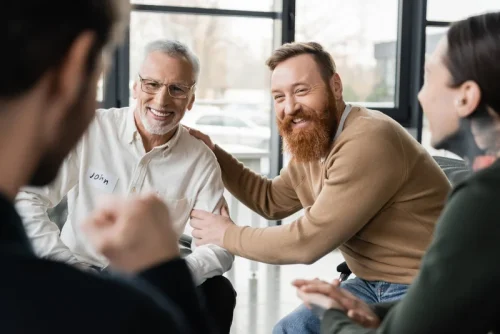Suriyah Jones is a 2024 JCal reporter from Fresno County.
A partnership between AAJA and / CalMatters

A partnership between AAJA and / CalMatters

JCal is a partnership between AAJA and CalMatters
This lets us to recognize our Substance abuse vulnerability, accept help, and realize we are never alone. With our team […]
June 6, 2022

This lets us to recognize our Substance abuse vulnerability, accept help, and realize we are never alone. With our team and your desire to heal, we can improve your quality of life and functional abilities, so you can get back to living your best life. Keep going to AA, NA or other support meetings; keep reading the Big Book or other sources of perennial wisdom and keep on the road to happiness. According to the National Institute on Drug Abuse, about 32% of 12th graders reported abusing drugs…
One valuable way to use gratitude as a driving force for positive change is by keeping a gratitude journal. This involves writing down three things each day that you are grateful for. It could be something as simple as having food to eat or being able to spend time with loved ones.

These practices include journaling, the healing power of gratitude letters, and expressing gratitude to friends, family, and support systems. So, let’s dive deeper into the ways in which gratitude can enhance addiction recovery, and how to make it a part of your daily routine. gratitude in recovery Gratitude is more than just a positive emotion—it’s a powerful tool that can help reshape our mindset. For people in recovery, especially those dealing with addiction, trauma, or loss, gratitude can provide a much-needed perspective shift. This process can be emotionally intense, but practicing gratitude can soften the impact, helping individuals stay grounded and focused on their progress. Research has shown that practicing gratitude can have profound effects on mental health.

This could include acknowledging personal growth, achievements, or moments of clarity. Keeping a gratitude journal can be a helpful practice to record these moments and reflect on them regularly. The effects of gratitude extend beyond emotional healing; it actively influences the recovery process. By cultivating the feeling of gratitude in recovery, individuals can shift their perspective on challenges, such as triggers and cravings. Furthermore, focusing on the positive aspects of the present moment and future outlook helps those working through trauma by reorienting away from negative thoughts or memories. Lastly, gratitude can increase a sense of connection with others and with ourselves, which makes commitments to sobriety easier in the long run.

Discover when your loved one doesn’t need a formal intervention and explore personalized support options today. Discover the long-term effects of alcohol on health, relationships, and emotional well-being in this insightful guide. Discover why hydrocodone addiction is on the rise and learn about its effects, signs, and treatment options. Discover the inpatient drug detox definition and learn how 24-hour support aids in recovery from addiction. Discover the outcomes of MAT for addiction treatment and the path to an opioid-free life in Kansas. Discover why addiction does not guarantee sobriety and explore the realities of recovery and treatment.
This shift in mindset can bring about a renewed sense of purpose, motivation, and self-empowerment. Strengthening relationships through gratitude creates a positive ripple effect, allowing individuals to feel more secure and supported during their recovery. These connections can encourage continued growth and resilience against challenges, fostering a supportive atmosphere essential for long-lasting recovery. For related insights on this topic, consider checking out our article on things to consider before reconciling with family. As individuals embark on their recovery journey, expressing gratitude can help mend these broken bonds. Gratitude fosters understanding, empathy, and compassion, which are essential for rebuilding trust.

Our Treatment Advisors are available 24 hours a day =https://ecosoberhouse.com/ to help you or a loved one access care. We’re ready to make sure you have the support you need to achieve lifelong recovery. Throughout each day, be mindful of your interactions and observations of others. Be mindful of sharing your gratitude for others as they cross your path or as you observe good deeds on behalf of strangers.
Explore new foods, or learn to cook – but take specific steps to give your body the energy it needs to work on recovery. Addiction can be isolating, and it creates pain and misunderstanding in relationships of all kinds. Being able to communicate clearly about your recovery experience and to ask for help when you need it can strengthen relationships and solve problems. Addiction keeps a person stuck in an unpleasant “now” that revolves around getting your next fix.
Suriyah Jones is a 2024 JCal reporter from Fresno County.

JCal is a free program that immerses California high school students into the state’s news ecosystem. It is a collaboration between the Asian American Journalists Association and CalMatters.
Contact us at michael@calmatters.org or support@aaja.org.
Subscribe to aaja’s newsletter